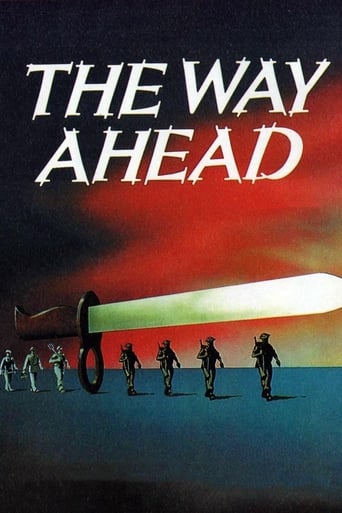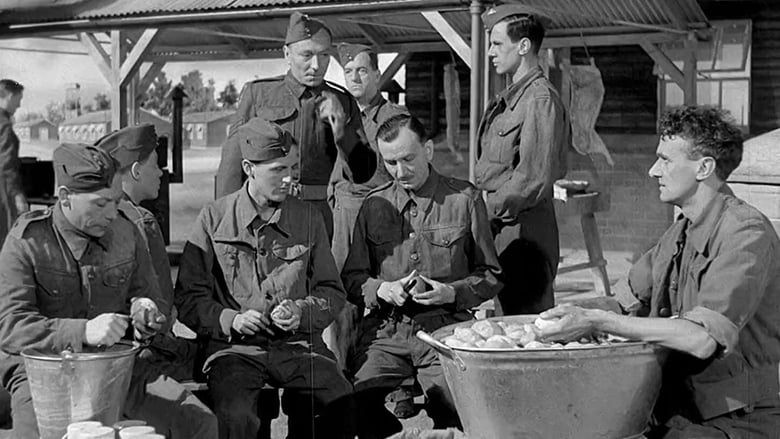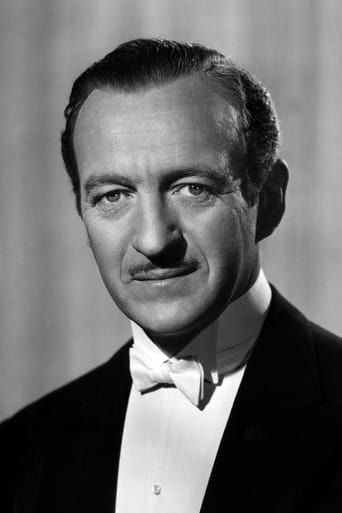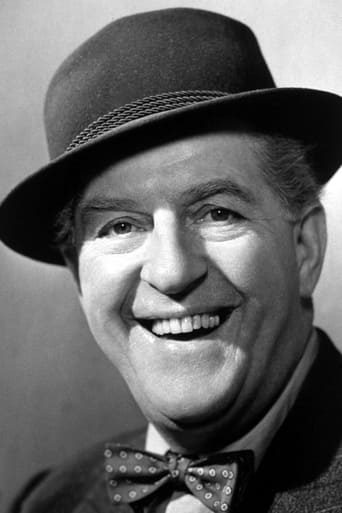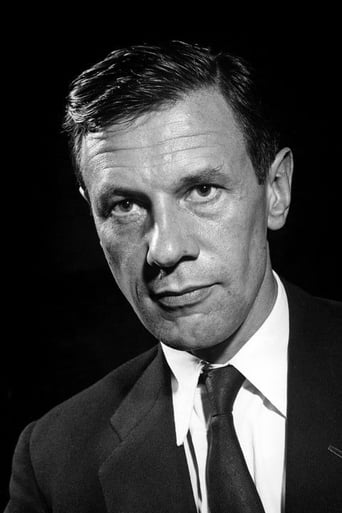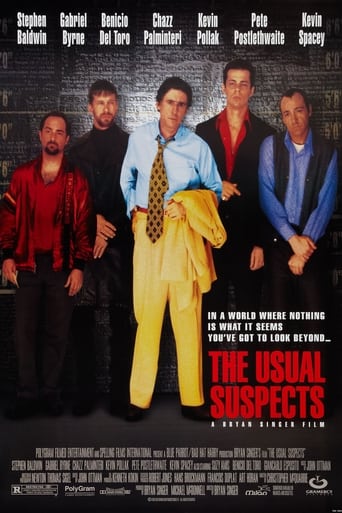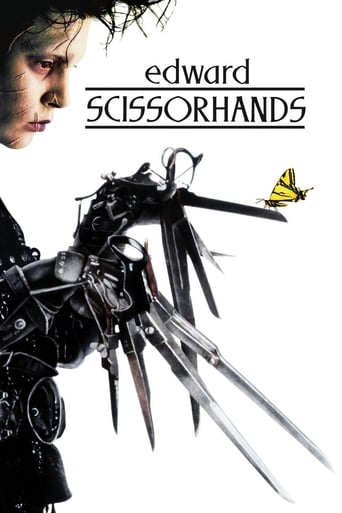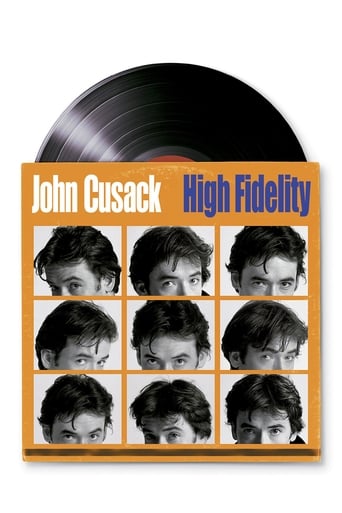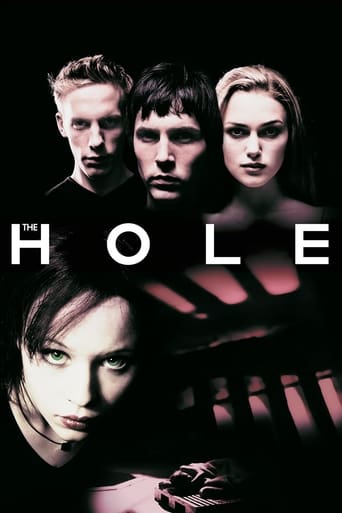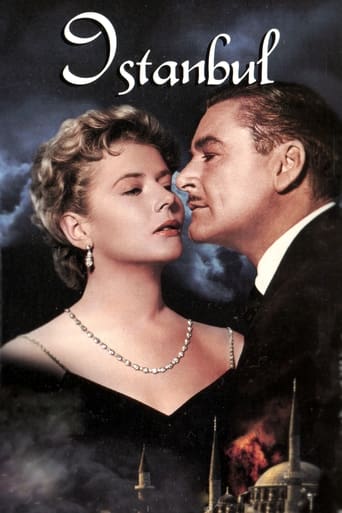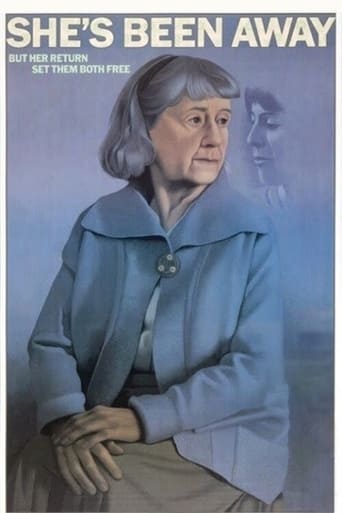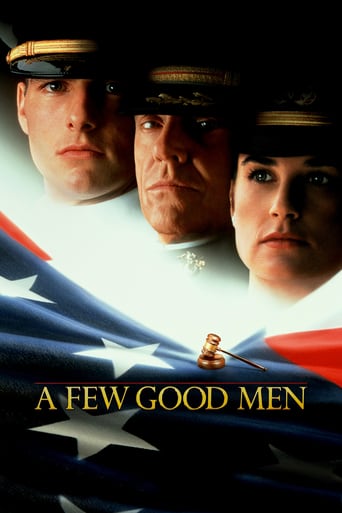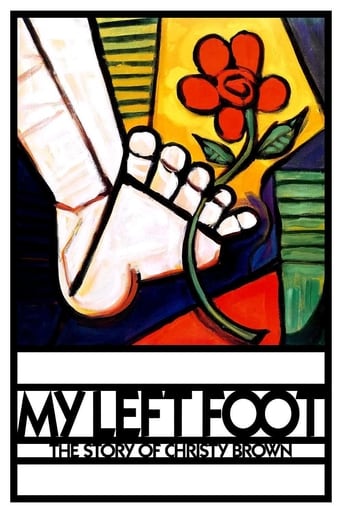The Way Ahead (1945)
A mismatched collection of conscripted civilians find training tough under Lieutenant Jim Perry and Sergeant Ned Fletcher when they are called up to replace an infantry battalion that had suffered casualties at Dunkirk.
Watch Trailer
Free Trial Channels
Cast


Similar titles
Reviews
just watch it!
I really don't get the hype.
Bad Acting and worse Bad Screenplay
.Like the great film, it's made with a great deal of visible affection both in front of and behind the camera.
THE WAY AHEAD is a British WW2 propaganda movie extolling the virtues of the British army and perhaps helping inspire people to sign up. Watching it today, it's a great film purely because it contains an ensemble cast of familiar faces, all of whom give fine performances. Like FULL METAL JACKET, most of the film is about training, training, and more training, with the real battle stuff saved for the final moments, but that doesn't mean that it's a dull movie. It's anything but.David Niven headlines the film as the officer in charge of a rag-tag group of men. Conflict arises from the stern disciple he extols, but of course it all comes right in the end. What's special here is the effort made to characterise all of the individual soldiers, and the writer does his job very well in this respect. Carol Reed's direction is exemplary too. The cast includes Hugh Burden, William Hartnell, Stanley Holloway, James Donald, John Laurie, Leslie Dwyer, Jimmy Hanley, Raymond Huntley, Peter Ustinov and Leo Genn, and it's fair to say that not one of them puts a foot wrong.
The version of The Way Ahead that I have is one that was edited for the American market and has a narration by US war correspondent Quentin Reynolds. It was his narration that sets the stage for a wartime tribute to the civilians who volunteered for king and country at a time of their nation's greatest peril.When war in Europe was declared David Niven was one of the British stars in America that went back to serve. Since he had been in the army before taking up acting, he was able to secure a commission. For a good deal of the war he was a training officer and really was drilling the men as we see on Salisbury plain. Some of his time was spent in the commandos in missions to Europe. And he was released to make wartime films Spitfire and The Way Ahead.The script was written by a 21 year old actor/playwright named Peter Ustinov who has a small role in the film. According to a new biography of Niven in order to secure Ustinov's service, enlisted man Ustinov was attached to officer Niven as his orderly. A whole lot of faces familiar in the British cinema appeared in The Way Ahead, people like Stanley Holloway, Jimmy Hanley, James Donald, Leo Genn, and Trevor Howard. And it was directed in good style by Carol Reed, one of his earliest films.One big flaw in the film was that the men who trained with officer Niven and sergeant William Hartnell ended up serving with him in North Africa. Not possible in America and not possible in the UK either. But since the idea was to show camaraderie, I guess that Two Cities Films can be forgiven.The point of the film and of Quentin Reynolds narration is that in time of peril it is the democracies and not those totalitarian countries with a superman philosophy who have the real strength of character. May it ever be so.
I really can't understand some of the more negative comments from some reviewers from the USA about this movie. For me, it is far superior to equivalent American wartime propaganda movies (including enjoyable but hardly realistic efforts such as 7 Graves To Cairo and Sahara), and made and acted by a British cast who were serving servicemen as well (unlike a certain J. Wayne or H. Bogart). Carol Reed gives us on the surface a cliche ridden movie but his gritty visual style which would become his trademark plus a script that still gives depth to a by now familiar concept lift this way above other movies made at the time.The soldiers don't look pristine and for most of the time, don't act heroically until the last 5 minutes. They're not an elite unit (as in Sands of Iwo Jima), they grumble, complain and stagger their way to the front lines but nor are they goofballs, pranksters or loveable rogues. They are ordinary men in difficult times, which was what the film makers wanted to show. They are not all broad stereotypes either; some, like the characters Davenport or Brewer, may on the surface seem like the upper class toff and the cheeky cockney but again, the way they interplay with the rest of the cast, they become more than just representatives of their class. For an old war movie, I was impressed with the action. Early on, when the two old soldiers are talking about how much better it was in the army in their day, we get a juxtaposed montage of David Niven in training, showing how hard it is. A lot of the burning troop ship shots are done hand held, which adds to the tension. The Tunisia scenes look very authentic and see how Reed indulges in rapid cutting, disorienting explosions and run down and dirty art direction. The only film that comes close to achieving this kind of grittiness in the war years is "Guadalcanal Diary".
This is a good film that was intended to bolster morale during World War II. The cast is very good and headed by David Niven. This is a story primarily of 8 men of different backgrounds who survive their basic training and end up driving Rommel out of North Africa. The film is primarily about how men develop character when push comes to shove and there isn't a whole lot of action. Good story and worth seeing for the strong cast alone.

